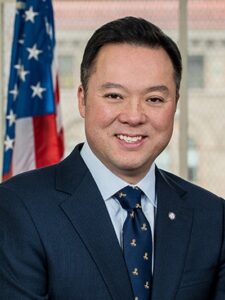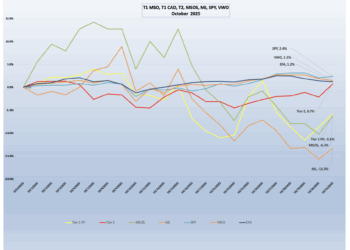Roughly one year into the launch of Connecticut’s adult-use cannabis market, the Nutmeg State is pushing back against alternative market suppliers amid a slow adult-use cultivation rollout and recent reports of dispensaries completely selling out of flower.
Last November, the state announced that it was increasing the purchase limit for adult-use cannabis to half an ounce, up from the previous limit of one quarter or 7 grams. Soon after, consumers began noticing that the supply in dispensaries was dwindling. By the end of the month, there were social media reports of shops completely running out of flower. CRB Monitor confirmed over the phone that several dispensaries were sold out.
“If you’ve been paying attention to social media spaces where Connecticut medical patients congregate, you’re already well aware of the inability of the incumbent licensed producers to adequately supply a growing retail market,” said Louis Rinaldi, a medical cannabis advocate in Connecticut. “Even some dispensary staff are candidly voicing their frustrations with patients who call to inquire about product availability. The only one with their head still in the sand here seems to be our state’s regulator.”
The Department of Consumer Protection, which oversees the state’s legal cannabis market, confirmed in December that the agency was aware of shortages, according to spokesperson Kaitlyn Krasselt. She argued that the lack of product was a result of increased demand during the Thanksgiving and December holiday seasons.
“We continue to monitor supply and demand data as it becomes available to us,” said Krasselt. “At this time, the transaction limit remains at one half ounce of raw flower or the equivalent per transaction.”

Meanwhile, Connecticut Attorney General William Tong sent a cease and desist letter, on Jan. 4, 2024, to the organizer of the High Bazaar, a weekly gathering with a $20 admission fee that allows vendors to sell various cannabis-related paraphernalia, while also offering free gifts of cannabis.
“Our Office has become aware that you are involved in organizing recurring, unlicensed cannabis markets under the name High Bazaar held at the Masonic Temple Day Spring Lodge in Hamden, Connecticut. It appears that these events involve the illegal marketing and sale of cannabis outside of the regulated market and that the events are accessible to individuals under the age of 21.”
The High Bazaar has been operating since mid-2021 when Connecticut first legalized adult-use cannabis. The event has been heralded as an option for craft growers eager to establish their brand. The state tightened its rules about gifting during the summer of 2022 in an attempt to stifle the weekly event, but it managed to continue in operation by relocating to a private indoor space.
Starting last October, the state also began cracking down on retail shops that were selling hemp-derived THC products, leaving many shop owners on the verge of closure. The new rules required all hemp-derived products be regarded as cannabis, which means they would be subject to seed-to-sale tracking and could only be legally sold in a licensed dispensary.
MSOs corner the market as social equity owners struggle to open
Connecticut’s adult-use market opened on Jan. 10, 2023, with nine dispensaries that all converted from medical-only into hybrid dispensaries for the general public. Over the last year, 10 more medical dispensaries converted to hybrid models, while nine more adult-use only retail shops opened. Three medical-only dispensaries remain.
The state already had four cannabis growers supplying the medical market, who were allowed to expand into adult use. But in the last year, only one additional cultivator has become operational making it harder for growers to keep up with the ever-expanding retail options for consumers.
The state’s decade-old medical cannabis market had four licensed cultivators when adult-use was legalized in the summer of 2021. All four — Curaleaf, Zen Leaf, Theraplant and Advanced Grow Labs — are owned by multi-state operators and were granted hybrid licenses, which also made them the sole producers for the state’s adult-use market.
New cultivators must qualify as social equity candidates, which the state defines based on income and whether they live in one of the state’s “Designated Impact Areas” that were negatively impacted by the war on drugs. The license also carries a $3 million fee, which means that every one of the aspiring operators below the income threshold would need a wealthy benefactor.
As such, even approved license holders have struggled to open their doors. The state approved 16 cultivators in July 2022. Since then only 12 have made it to the provisional state, according to the state’s licensing database. Only one of those 12 has a final license, though Krasselt clarified that all 12 have paid their $3 million licensing fee. The state also awarded six micro-cultivation licenses, which are allowed to grow no more than 10,000 square feet of canopy. Only two of them have received their final license.
Last summer, the state legislature passed an omnibus cannabis bill that included a provision for the creation of a task force to study the possibility of allowing home growers to sell their product in public settings, much like a farmers’ market, with a deadline set for Jan. 1, 2024, to produce a report on their findings and then disband.
The task force was supposed to have members that were appointed by both houses of the legislature as well as the governor. Only one appointment, made by Gov. Ned Lamont, was made.
“As established under statute, this task force is a function of the legislature. The Senate President and House Speaker are required to select its chairpersons, who are responsible for scheduling its meetings, and legislative staff from the General Law Committee are required to provide the task force with administrative support,” said Lamont’s press secretary, David Bednarz. “Governor Lamont has appointed Dr. Jason White, director of the Connecticut Agricultural Experiment Station, to serve on this group.”
Bednarz also noted that the governor did not make his appointment until December.












